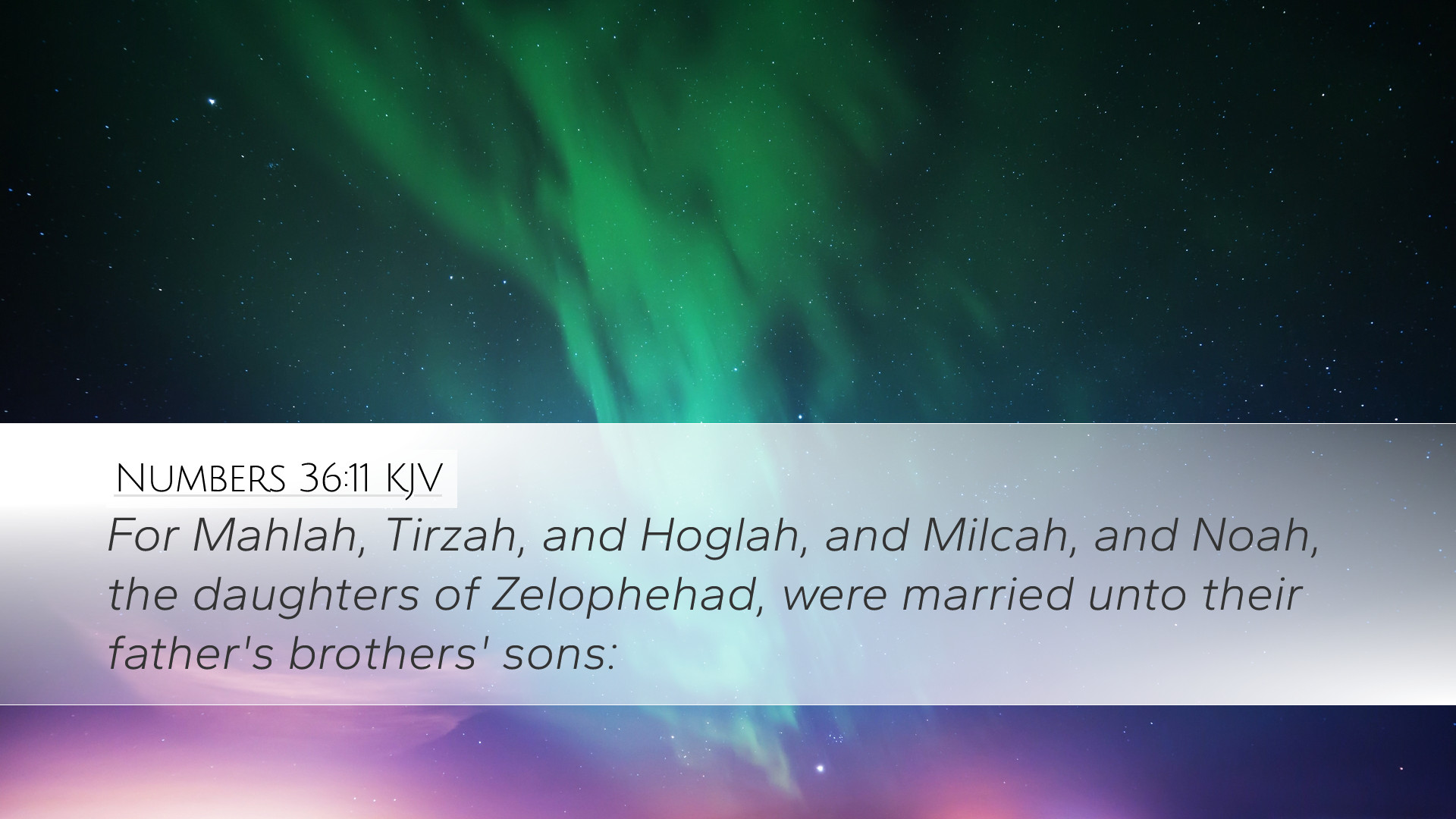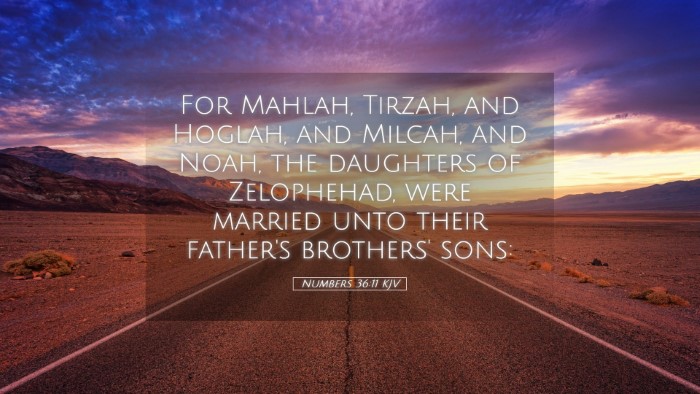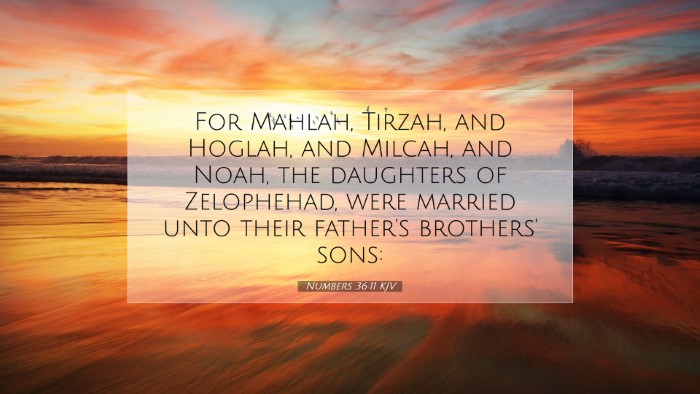Commentary on Numbers 36:11
Numbers 36:11 reads: "For Mahlah, Tirzah, Hoglah, Milcah, and Noah, the daughters of Zelophehad, were married to their father's brother's sons." This verse is part of a narrative that deals with inheritance rights and the implications of familial lineage in Israel.
Contextual Background
To understand Numbers 36:11, we must first consider its context within the Pentateuch. The book of Numbers addresses various laws and instructions given to the Israelites as they journey through the wilderness. The daughters of Zelophehad raised a critical question concerning inheritance rights for daughters in the absence of sons, which led to a divine response recognizing their claim (Numbers 27:1-11).
Insights from Public Domain Commentaries
Matthew Henry Commentary
Matt Henry's Commentary highlights the significance of the daughters' marriages within the context of maintaining inheritance rights. He notes that their choice to marry within the family of their father's brother was imperative to preserve the property and lineage uninterrupted.
- The marriages serve as a means to secure the land inheritance for the tribes of Israel.
- This decision underscores the importance of tribal integrity in Israel’s socio-economic structure.
- Henry emphasizes God’s fairness in establishing the policies concerning inheritances, ensuring they are aligned with divine justice.
Albert Barnes Notes
Albert Barnes provides insight into the cultural practices surrounding marriage and property rights in ancient Israel. He points out that this verse illustrates a significant shift in Israelite inheritance laws.
- The daughters exercised their God-given rights to inherit property, which directly impacts the understanding of women's roles within the Israelite community.
- According to Barnes, the marriages were not mere personal choices but reflected broader tribal obligations and laws.
- He affirms that these provisions catered to the preservation of equity among the tribes, mirroring God’s sovereign concern for social justice.
Adam Clarke's Commentary
Adam Clarke sheds light on the spiritual implications of this verse, recognizing the importance of obedience to divine commandments. The text indicates that the daughters were not isolated cases but part of a divinely sanctioned plan.
- Clarke suggests that their actions demonstrate obedience and faithfulness to God’s commands and prophecies regarding inheritance.
- This choice reflects a broader theological theme of God’s providence, where He honors their unyielding faith through the continuation of their family line.
- He emphasizes the scriptural principles of fidelity to God’s laws and their resultant blessings upon faithfulness.
Theological Implications
The verse not only serves to record historical facts concerning the daughters of Zelophehad but also leads us to consider profound theological implications:
- Women's Rights: The narrative champions the rights of women, signifying a progressive understanding of gender roles in biblical texts.
- God’s Justice: The legal recognition of the daughters’ claims showcases God’s inherent desire for fair treatment of all individuals in society, affirming His justice.
- Faithfulness and Inheritance: The promise of inheritance is not merely a physical possession but also stands as a metaphor for spiritual inheritance in Christ, reinforcing that faithfulness to God’s commands leads to eternal blessings.
Applications for Today’s Reader
In conclusion, Numbers 36:11 offers contemporary readers robust applications:
- Advocacy for Justice: Believers are called to advocate for justice and fairness in their communities, reflecting God's character.
- Empowerment of Women: The narrative serves as a reminder of the importance of empowering women and recognizing their contributions in both the church and society.
- Commitment to God’s Will: The diligence of the daughters of Zelophehad to follow God's directives highlights the necessity of obedience and the blessings that follow such faithfulness.


